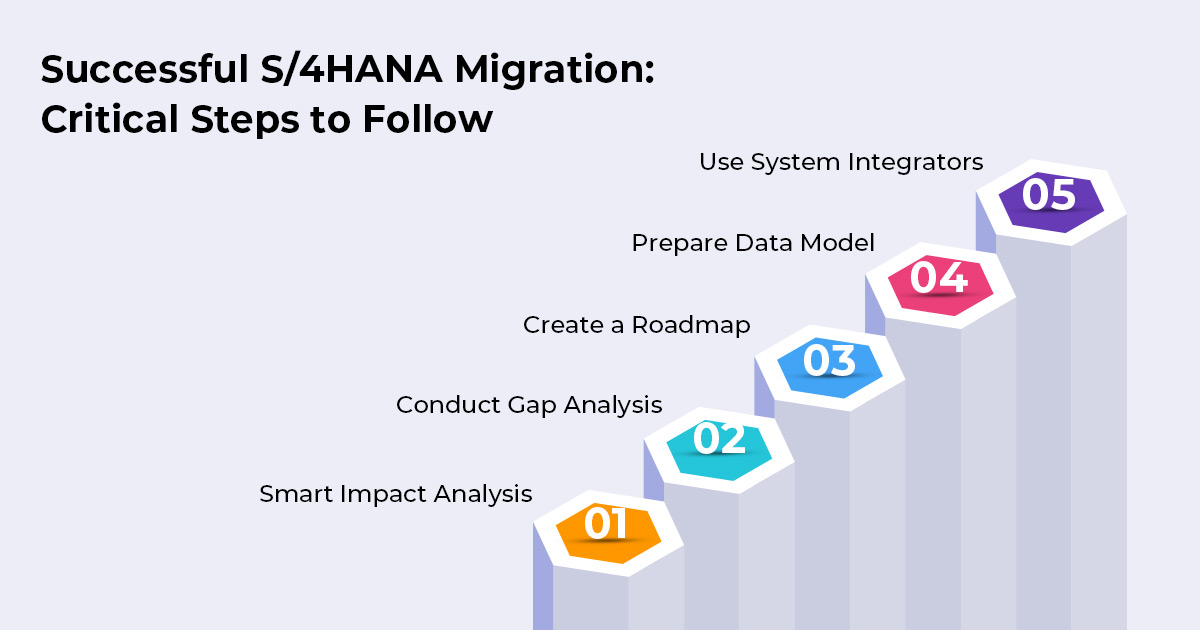As the increased pace of digitalization accelerates competition, enterprises are looking for technologies that can successfully transform their businesses and integrate them with the digital economy. To increase profitability and drive growth, enterprises need flexible IT systems that can help them offer seamless, end-to-end customer experiences.
With its built-in intelligence technologies, SAP S/4HANA can help enable innovations and support you to create intelligent manufacturing, production and supply chain processes.
Today, customers are seeking hyper-personalized products. This calls for a change in business models and intelligent ERP systems so that enterprises can adapt and scale with flexibility. An intelligent ERP system with built-in AI/ML and advanced analytics provides the necessary tools for enterprises to serve customers better.
SAP S/4HANA
SAP S/4HANA is a market leader in the Enterprise Resource Planning (ERP) segment. SAP introduced SAP HANA in 2012 to support enterprises to perform better in a digital world. Being an in-memory database, HANA could handle data processing much faster than the existing systems. As a result, it processes data faster, provides real-time reporting and supports innovations using IoT and machine learning.
In the last 10 years, HANA has grown into a major digital platform with various key components, such as SAP Fiori, S/4HANA and other SAP products.
Considered a successor to SAP ECC SAP S/4HANA offers support for core ERP business processes. Currently, enterprises are able to enjoy the benefits of HANA technology as SAP Business Suite can run on HANA. However, SAP will end its support for legacy products in 2027. After a transitionary period of three years i.e., by 2030, customers who are not on S/4HANA will have to shell out a lot more to maintain their legacy systems as SAP will shift to a customer-specific maintenance model.

SAP S/4HANA: The Future
Being an intelligent ERP system, SAP S/4HANA can take the digital transformation efforts of an enterprise to the next level.
SAP S/4HANA enables enterprises to set up end-to-end processes and manage them efficiently. This in turn helps offer seamless experiences to customers. Besides, enterprises can maintain their end-to-end supply chain in a sustainable manner using S/4HANA.
In a volatile business environment, SAP S/4HANA becomes your enterprise’s steering system. A cloud-based system, SAP S/4HANA brings much-needed agility and flexibility to an enterprise that operates in a digital economy.
S/4HANA migration is often complicated, disruptive and time-consuming. Your teams and various departments have to get acquainted with the new system to take advantage of the benefits offered by S/4HANA. Gemini Consulting & Services has helped several clients in various parts of the globe in their transition process. We can help you eliminate issues of ERP changes so that you can focus on your business, your roadmap and your objectives. Click here for S/4HANA migration and maintain your BAU operations.

Smart Impact Analysis: In the first stage or discovery phase, enterprises should conduct an initial analysis of their business requirements. They need to determine whether S/4HANA can fulfil their needs. This analysis should also cover the gains they can obtain, the problems S/4HANA can solve and the opportunities it offers for the enterprise.
Conduct Gap Analysis: Conducting a gap analysis on S/4HANA during the initial stage will help enterprises to choose the parts they want to deploy first. In this manner, the deployment of the less mature components can be deferred to mitigate risk. Enterprises need to consider S/4HANA migration as an entirely new implementation.
Create a Roadmap: Enterprises should prepare a roadmap for S/4HANA migration. This will help team members in various departments to prepare themselves for impending changes. This roadmap will help provide a deeper understanding of various activities around resource allocation, timing and project planning.
Prepare Data Model: Put your data front and center. Enterprise should focus on getting accurate data and they need to pull all of the financial data together. You need to have a data model in place before adding and customizing S/4HANA Finance features, such as accounts payable and receivable.
Use System Integrators: S/4HANA migration becomes an easy process with the right talent, professional support, data models and roadmap. Enterprises require a reliable partner with extensive experience to prepare a roadmap and establish controls. With the help of a technology partner, enterprises can also reduce the total cost of ownership of S/4HANA.
S/4HANA: Transforming Enterprises
Concepts like digital transformation and intelligent enterprise generally denote increased efficiency and productivity, better financial management, the potential for innovation, and flexibility to accommodate changing business requirements in a dynamic marketplace. With SAP S/4HANA enterprises get an all-in-one solution that can lift their business to the next level.
Whichever business segment you are in and wherever your operations are located, the features of SAP S/4/4HANA allow you to optimize your supply chain management, streamline your manufacturing processes, improve R&D work, optimize your manpower requirements and better management of your financial resources.
S/4HANA is the powerful ERP software serving as the foundation for your successful enterprise.
By implementing s/4HANA, enterprises are able to modernize their IT systems and remove information silos created by disjointed legacy systems. This, in turn, provides them with a centralized platform with complete visibility of their entire business processes, offering them better control and compliance.
Deployment of S/4HANA allows businesses to activate AI-powered pricing information. It also has mobile and application development capabilities that can help users with the tools they need to access information and services from anywhere, anytime. Ultimately, the system helps enterprises to achieve higher customer satisfaction at a lower cost. As there is no need to maintain a large number of legacy systems, your IT cost and manpower requirements will also be reduced significantly.
Overall, S/4HANA will be the driving force that will make your enterprise smarter, intelligent and well-prepared to unlock maximum value in a digital economy.



